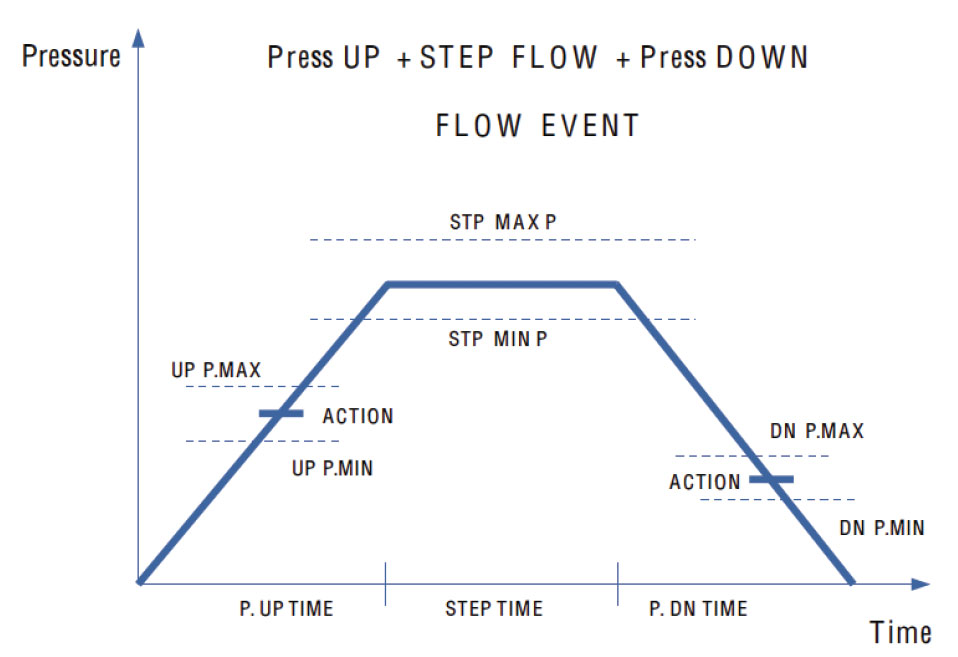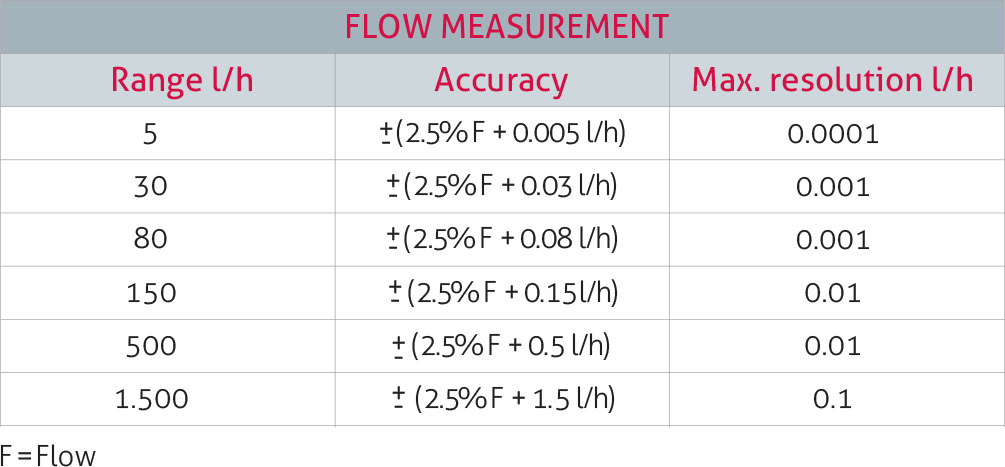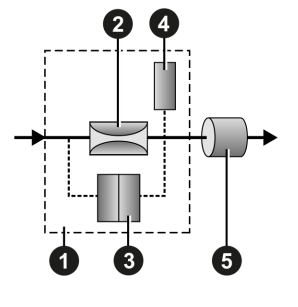

ERD620 – NEW COMPACT VALVES TESTER
After 46 years, and 275,000 testers installed in more than 5,000 customers worldwide, ATEQ presents its revolutionnary valves tester ERD620.
New electronic module, new measurement module, new interface, new accessories… All has been made to improve your quality control.
The purpose of the instrument is to generate a pressure ramp and is waiting for an event as a flow appears (ex: valve opening). A ramp down can also detect when valve is closed. The instrument will display the event pressures and compare them to reject levels. As an option the flow event can be replaced by a dry contact event.
ERD620 : APPLICATIONS
FLOW CONTROL
Opening valves, closing valves with flow detection…
LEAK DETECTION
Leaking levels with flow detection…
CONTROL
Pressure contact elements…
ERD620 : FEATURES
• Flow measurement in direct or indirect testing
• Wide flow measurement range
• USA, S.I. and customer units
• Measurement in standard or customised conditions
• Recalculated flow at the nominal pressure
• Measurement element fully integrated into one module
• 128 programs
• Electronic regulator from vacuum to 10 bar
• Setting on line (via USB)
• 2 languages (English + other one)
• Data storage on internal memory or USB key
ENVIRONMENT :
ROHS standard
FLEXIBLE COMMUNICATION FORMAT :
•RS232: Printer, modbus RTU
•Slave USB: PC supervision (WinAteq 300)
•Master USB: USB key to transfert (parameters, results, …)
•Option Fieldbus: Profibus, devicenet, profinet, Ethernet/IP, Modbus RTU

MEASUREMENT RANGES :

ERD620 : SPECIFICATIONS
ERD620 : OPTIONS
•9 inputs / 5 local outputs compatible with 5 series instruments
•6 inputs/ 6 outputs 24 V programmable for external automation
•External capillary: Close to the test part
• 2 pneumatic outputs for control of sealing connectors
• Memory card for archiving results (400 000)
ERD620 : FACTSHEETS
Detailed information about the ERD620 including features, specifications, etc.
ERD620 : TECHNOLOGY
Sometimes a leak can be considered as a “small flow”, or a flow as a “big leak”. When your reject level is too high for other technologies, it may be necessary to use a laminar flow tester. A flow takes place between the pressure line and the leak hole of the part.
Our instrument features a laminar flow element across which our differential pressure transducer is connected.
Every flow generates a pressure difference between the inlet and outlet of the laminar flow element, and this variation is measured by the pressure transducer.
When the fluid (gas) enters the device 1, it moves through a calibrated flow tube 2 which causes a drop in pressure. The pressure drop is measured by a differential pressure sensor 3. The pressure of the part under test 5 is measured by the sensor 4.

